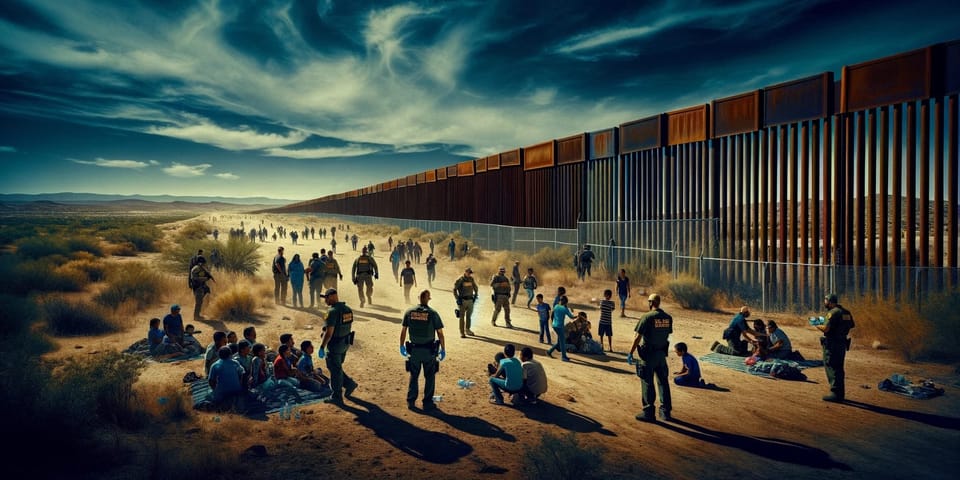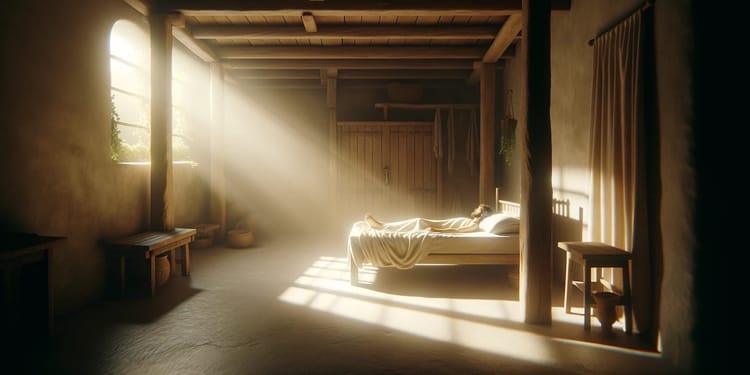Fairhaven Shorts 4-21-24

Border Patrol and Asylum Protocols
Transcript
All right, so we did talk to some border patrol agents, and they told us that the safest option for people, if they decide to try to climb the wall, is to do it near civilization, not far away, and to locate border patrol immediately and request asylum. Because away from civilization, the mountains there are dangerous, and the desert is deadly. And chances of survival are best if they locate border patrol right away. Psalm 23 says, He makes me to lie down in green pastures, and he leads me beside still waters.
I didn't see any green pastures there, but the region is unimaginably dry.
Confronting Drug Smuggling at the Border
Transcript
One of the other major problems for border control is the drug cartels. Organized crime today is exceedingly organized. They deal in drugs, human trafficking, the sex trade, extortion. It's also important for us to know they said that 80 to 90 percent of the people smuggling drugs into the United States are American citizens and they fly in.
They don't come across the border. So one thing I noticed that kept cropping up in the background of all these conversations is that so much of the security and the technology at the border was developed in response to 9/11, September 11th.
Abara's Mission at the Border
Transcript
Our time at the border was organized by this group called ABARA. They have actually locations on both sides of the border. This was the El Paso location. It's a beautiful place.
So ABARA provides micro-enterprise opportunities for women who are migrants. They provide supplies for shelters that are run by faith-based agencies, and they provide meals. At ABARA, we learned first off that in ministry, we need to be aware of the need for self-care. We need to rest.
We need to eat. We need to hydrate. We need to care for ourselves so that we can care for others. And they advised also that we not try to learn everything all at once, but to take pictures and to ask questions.
One of the first things we discovered is that the media, as I had guessed, has misrepresented many things, many things, not just the things we thought we knew about, okay? For example, the media has misrepresented us. The media has told the refugees coming to this country that Americans hate them.
Humanitarian Aspect of Border Patrol Work
Transcript
Border Patrol has been completely overwhelmed by the sheer numbers of people arriving, and there are not enough officers to handle everyone. Border Patrol needs more people, in case you know anyone who needs a job, they need more people. Members of Border Patrol are trained to be law enforcement officers, but they're being called on to handle a humanitarian crisis, and they're not trained or equipped for that. And this is part of the reason why there is such a high suicide rate among Border Patrol agents.
What gets to them most are the migrant children. These women, they said to us, We're moms too, we love kids. We don't want to see them harmed. What they do have to do is to, they work with the border wall, and they work, they have the border wall, they have the cameras, they have the motion detectors both above ground and underground.
Border Patrol's job is to be present in minutes or less whenever someone shows up on one of these devices. And they said they need more walls in some places, but they do not need walls everywhere. They said we do not need a wall through the entire length of the border. They're not even looking for that.
Retired Border Patrol Agent's Mission to Help Migrants
Transcript
Our final visit was a migrant shelter, to a migrant shelter in El Paso. And this shelter is a very short-term shelter. The people here are usually there just for a day or two, maybe three. Sacred Heart Roman Catholic Church feeds and houses about 100 to 150 people every night in their gymnasium.
And the shelter is run by a guy named Mike, who has retired from 26 years of service in the Border Patrol, and is now running this shelter in his retirement.


